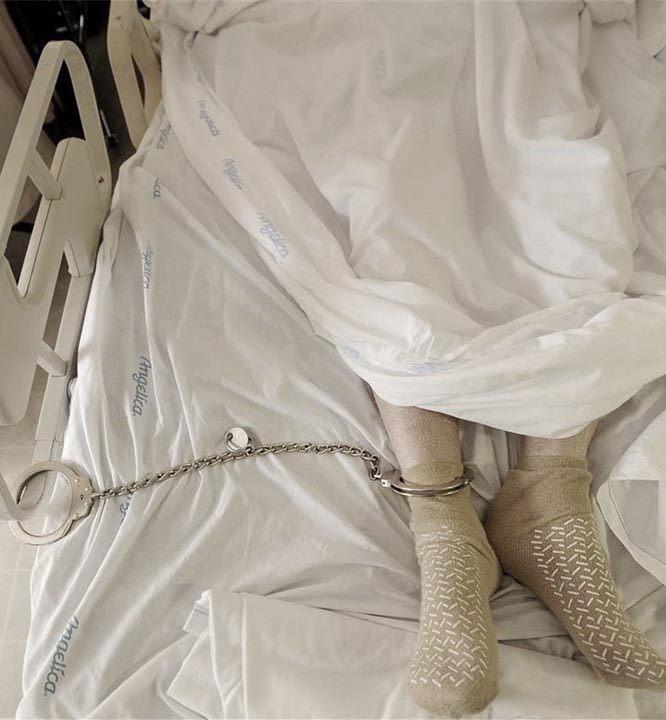Constraints in end of life care for prisoners
Complexities and constraints in end of life care for hospitalised prisoner patients.
Pre-proof article in press available at: https://www.clinicalkey.com.au/#!/content/journal/1-s2.0-S0885392420304280
Managing the care of an increasing and ageing prisoner population, including providing palliative and end of life care, is a challenge worldwide. An exploratory study was recently undertaken by the Palliative Nexus Team, Department of Medicine, University of Melbourne and St Vincent’s Hospital, to understand the little-known perspectives and experiences of health professionals who provide palliative care to hospitalised prisoner patients.

Through focus groups and interviews with 54 medical, nursing and allied health staff engaged in the care of hospitalised prisoner patients, data revealed unique obstacles faced by staff, including constraints on: prisoner health decisions; provision and place of care; patient advocacy; and how care is delivered in the last days of life. Staff highlighted a deep philosophical tension between prison constraints and the foundational principles of palliative care.
Findings of this research were published this month in the Journal of Pain and Symptom Management, drawing attention to the need for clarity of correctional services processes, protocols, and aspects of security and related training for health professionals. The perspectives and experiences of prisoners facing end of life and their families need to be sought to inform optimal palliative care for prisoners with progressive and life limiting illness. A broader community and public health discussion is also required to progress the considerable philosophical issues surrounding the nature of caring for prisoners with progressive, life-limiting illness at the end of life.
- Stacey Panozzo.